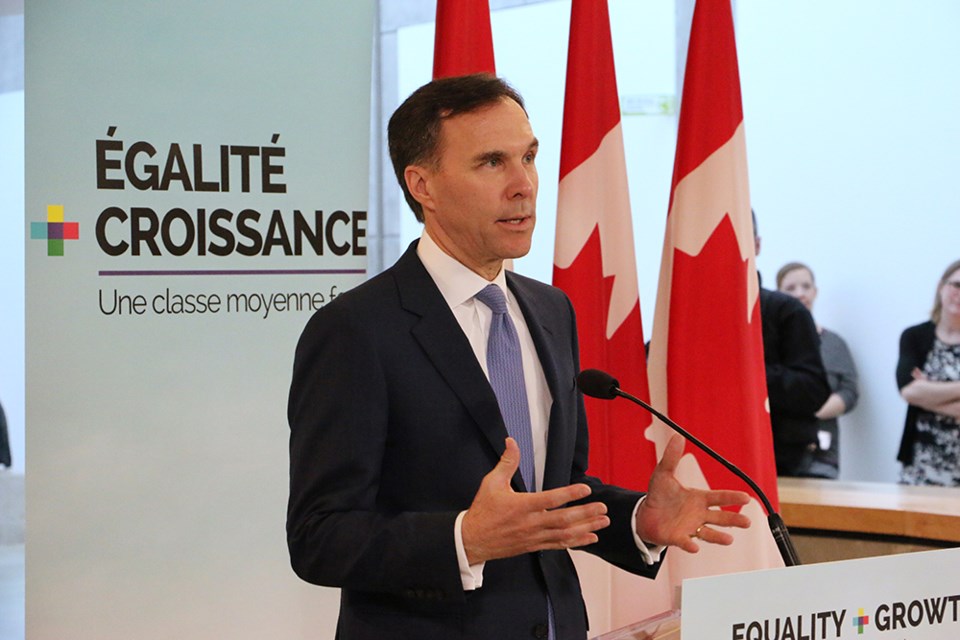Finance Minister Bill Morneau’s says Canada’s response to possible tariffs by the U.S. will be “appropriate but firm,” adding that Canada is a key partner to the United States supply chain.
Questions on the economic saber rattling between Canada and U.S. President Donald Trump dominated Morneau’s visit to Vancouver on Tuesday, both at a discussion session with the Business Council of British Columbia and later at the UBC campus. He said Canada’s approach to recent policy decisions by the U.S. government, namely an imposition of tariffs on steel and aluminum, will be measured in nature.
“If required, we will be firm in our response, appropriate but firm,” Morneau said without going into detail what a response may look like or whether there is the option of pulling out of the talks for a new North American Free Trade Agreement. “We don’t see that linking steel and NAFTA is going to help us to get to an agreement.”
He was in town to promote the federal government’s 2018 budget and sat down with Vancouver’s business community at the Fairmont Pacific Rim to answer questions on the Canadian economy.
With respect to the oil and gas, Morneau said low oil prices led to a drop in investment in the sector and exporting Canada’s fossil fuels would attract capital more so than being in lockstep with the United States’ relatively low corporate taxes.
“You can actually see a reduction in investment in this country as it relates to investment in the oil and gas sector. What’s the single biggest factor to ensuring investment in oil and gas? I would put it to you, it’s finding a way to get a more world-market based price for those resources,” Morneau said to roughly 200 guests at the Star Sapphire Ballroom.
He conceded, however, that the differing points of view between Alberta and B.C. on the Kinder Morgan pipeline are a frustrating challenge.
“It’s always messy trying to get projects done in a democracy,” Morneau said.
Later in the day, he touted the Liberal government’s “record” funding of sciences at colleges and universities in the form of grants, after visiting the Brain Behaviour Laboratory at UBC’s Koerner Pavilion and partaking in games used in the rehabilitation of stroke patients. The federal government has put aside $925 million over five years for research grants for the National Science and Engineering Research Council, the Canadian Institutes of Health Research and Social Sciences and Humanities Research Council.
However, Morneau was not explicit on any new measures to address student loan debt beyond what was in the 2016 budget. For now, payments on federal student loans are deferred if new graduates earn $25,000 or less a year.
“On an ongoing basis, we recognize that working together with the sector is important,” Morneau said of funding post-secondary education. “As you know, it’s largely funded by provinces, but we see that federal government has an important role.”
Canadian post-secondary students owe an average $27,000 in student loans, according to a 2015 study by the Canadian University Survey Consortium. In its 2018 budget last week, the provincial NDP government said it is eliminating interest rates on provincial student loans and giving each student a $1,000 completion grant.



